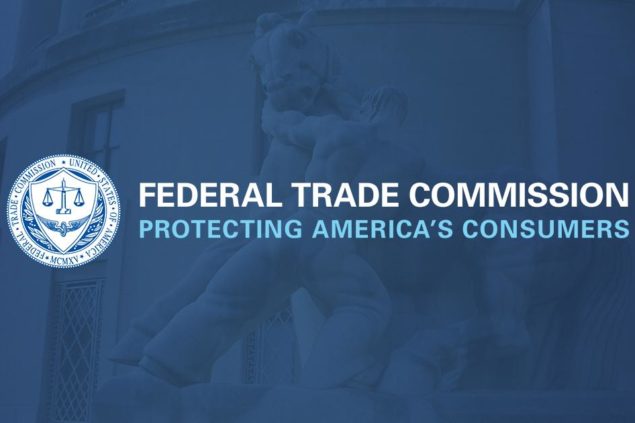Joshua D. Wright
Executive Director
Global Antitrust Institute, Antonin Scalia Law School, George Mason University

Joshua D. Wright
Executive Director
Global Antitrust Institute, Antonin Scalia Law School, George Mason University
Joshua D. Wright is University Professor and the Executive Director of the Global Antitrust Institute at Scalia Law School at George Mason University. Professor Wright also holds a courtesy appointment in the Department of Economics. In 2013, the Senate unanimously confirmed Professor Wright as a member of the Federal Trade Commission (FTC), following his nomination by President Obama. He rejoined Scalia Law School as a full-time faculty member in Fall 2015.
Professor Wright is a leading scholar in antitrust law, economics, intellectual property, and consumer protection, and has published more than 100 articles and book chapters, co-authored a leading antitrust casebook, and edited several book volumes. Professor Wright’s teaching interests include Antitrust, Contracts, Administrative Law, Intellectual Property and Antitrust, and Quantitative Methods. He was awarded the Paul M. Bator Award by the Federalist Society in 2014 to “an academic who demonstrated excellence in legal scholarship, a commitment to teaching, a concern for students, and who has made a significant public impact.”
Wright previously served the FTC in the Bureau of Competition as its inaugural Scholar-in-Residence. Wright’s return to the FTC as a Commissioner marked his fourth stint at the agency, after having served as an intern in both the Bureau of Economics and Bureau of Competition.
Wright received his JD and his PhD in economics from UCLA and graduated with honors from the University of California. He is a member of the California and DC Bar.

A person listed as a contributor has spoken or otherwise participated in Regulatory Transparency Project events, publications, or multimedia presentations. A person's appearance on the website does not imply an endorsement or relationship between the person and the Regulatory Transparency Project. The Regulatory Transparency Project takes no position on particular legal or public policy issues. All expressions of opinion by a contributor are those of the contributor.
Contributions
Deep Dive Episode 255 – A Roundtable on Recent Developments at the FTC
This episode is a live recording of a panel of antitrust law experts examining recent developments and debating what might come next at the FTC.
Listen to this podcastA Roundtable on Recent Developments at the FTC
Recent months have seen a flurry of notable developments at the Federal Trade Commission. Antitrust law experts examine these developments and debate what might come next at the FTC.
Watch this videoDeep Dive Episode 178 – (Un)Civil War: The Future of Conservative Antitrust
Professors Joshua D. Wright and John Yun discuss the future of the conservative approach to antitrust law.
Listen to this podcast(Un)Civil War: The Future of Conservative Antitrust
Professors Joshua D. Wright and John Yun discuss the future of the conservative approach to antitrust law.
Watch this videoDeep Dive Episode 171 – Courthouse Steps Oral Argument: NCAA v. Alston
Joshua Wright joins us to discuss oral arguments in NCAA v. Alston and the potential implications of the case.
Listen to this podcastDeep Dive Episode 162 – Is Common Carrier the Solution to Social-Media Censorship?
Experts discuss the practicality and desirability of using common carrier to regulate social media content moderation.
Listen to this podcastIs Common Carrier the Solution to Social-Media Censorship?
Experts debate the relevant legal contours and the desirability of a common carrier solution to curbing Big Tech power.
Watch this videoDeep Dive Episode 120 – FTC Rulemaking: Underutilized Tool or National Nanny Renewed?
This expert panel examines recent calls for the Federal Trade Commission (FTC) to engage in substantive rulemaking under the competition and consumer-protection prongs of Section 5 of the FTC Act. How far does FTC statutory authority under 6(g) extend? Is rulemaking appropriate as a matter of policy? How has FTC rulemaking fared in the past and what guideposts should apply?
Listen to this podcastFTC Rulemaking: Underutilized Tool or National Nanny Renewed?
This expert panel examined recent calls for the Federal Trade Commission (FTC) to engage in substantive rulemaking under the competition and consumer-protection prongs of Section 5 of the FTC Act. How far does FTC statutory authority under 6(g) extend? Is rulemaking appropriate as a matter of policy? How has FTC rulemaking fared in the past and what guideposts should apply?
FTC Commissioner Noah Phillips gave honorary introductory remarks.
Watch this videoA Bargaining Model v. Reality in FTC v. Qualcomm: A Reply to Kattan & Muris
Douglas Ginsburg and Joshua D. Wright
In a recent article Joe Kattan and Tim Muris (K&M) criticize our article on the predictive power of bargaining models in antitrust, in which we used two recent applications to explore implications for uses of bargaining models in courts and antitrust agencies moving forward. Like other theoretical models used to predict competitive effects, complex bargaining models require courts and agencies rigorously to test their predictions against data from the real world markets and institutions to which they are being applied. Where the “real-world evidence,” as Judge Leon described such data in AT&T/Time Warner, is inconsistent with the predictions of a complex bargaining model, then the tribunal should reject the model rather than reality.
Read this articleThe Taiwan Fair Trade Commission’s Problematic Qualcomm Decision Highlights the Urgent Need for U.S. Leadership in International Antitrust
Joshua D. Wright
The TFTC’s Qualcomm decision clearly demonstrates the urgent need for further steps and continued leadership from American antitrust agencies.
Read this articleOccupational Licensing and the American Dream
James C. Cooper, Koren Wong-Ervin, and Joshua D. Wright
More than a quarter of the American labor force requires a state license to work, a five-fold increase since the 1950s. Occupational licensing imposes restrictions on competition in every reach of the modern economy — with pernicious effects.
Read this article











